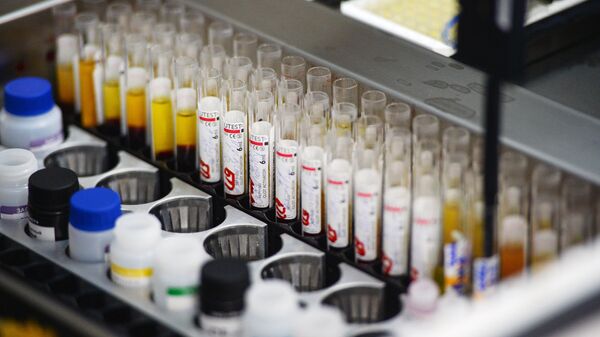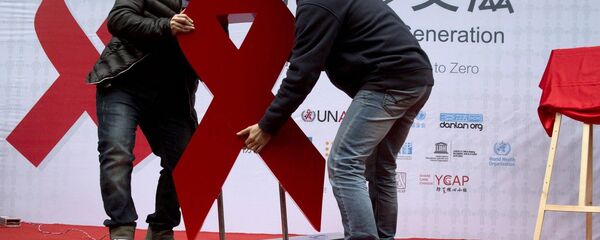New Delhi (Sputnik) — The pace of decline in HIV infections cases in India has slowed significantly. Judging by the data released after a long gap by the National AIDS Control Organisation (NACO), new HIV infections declined only 27% between 2010 and 2017 posing a major challenge for the NACO which had set a target of 75% reduction by 2020. NACO is the apex body responsible for raising awareness about HIV-AIDS as well as lab testing for detection of new cases.
READ MORE: First Case of Rare Flesh-Eating STD Reported in UK
"There is a segment of the community that feels that the moment they come to the system they will be humiliated and discriminated against. So this segment is not participating in our activities whether it is awareness activities or testing activities," Dr. Naresh Goel, Deputy Director General of NACO which is part of India's Ministry of Health and Family Welfare told Sputnik.
An official has told Sputnik that the government has not been able to solve the problem of unavailability of pediatric formulations for HIV infections since March 2017 when the manufacturer stopped supplying the drug to NACO due to non-payment issues.
"The shortage of funds is always there because the kind of elimination aim that we are having. We are having incremental funding. Funding is increasing but not at the rate at which it should increase," Goel added.
Several field workers were contacted by Sputnik. They said, under the condition of anonymity, that basic preventive measures like condoms are not being supplied in the required quantity, thereby increasing the risk of HIV risk among sex workers and transgender people.
READ MORE: Rubbers for Dummies: CDC Warns Americans Not to Wash, Reuse Condoms
Meanwhile, the Indian government has announced implementation of a crucial law called the Human Immunodeficiency Virus (HIV) and Acquired Immune Deficiency Syndrome (AIDS) Act to ensure equal rights to persons affected by HIV — AIDS in getting treatment, admission to educational institutions and jobs.
"It is basically a reformative law. Wherever we find some kind of discrimination happening we will sensitize that person more; will put that person for a special training for a week or attach that person with NGOs so the next time they do not discriminate against HIV-positive people at the workplace like termination from a job or putting the person in a lower job or giving them a lesser salary," Naresh Goel concluded.




